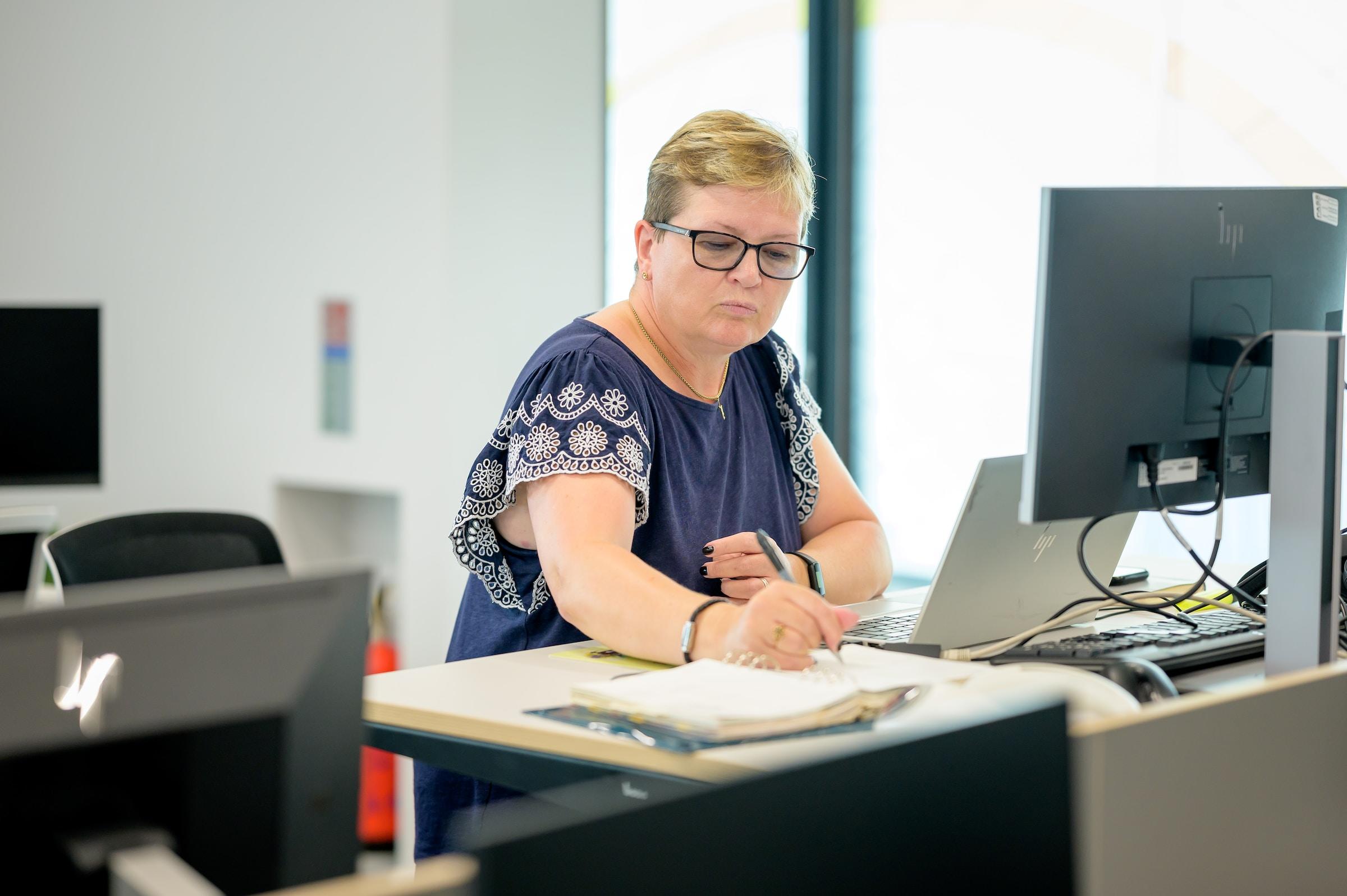"Learning is a treasure that will follow its owner everywhere." -Chinese Proverb
Regardless of the topic we are learning more about or our age, we are constantly learning new things and filling our minds with so much information. True, at times, we may think that we know everything, but that couldn't be farther from reality. There's so much to grasp and the 70, 80, or 90 years we have to live as humans are not even close to being enough to take everything in. Therefore, we must be selective as to what we will learn in the time that we're given.
The formative years are designed for making choices and determining the type of person you are. School introduces students to a variety of academic topics and disciplines that aid them to see whether they prefer subjects that are more analytical or more abstract.
So, what if you're a fan of maths and you enjoy scanning through loads and loads of numbers? Careers in data science, engineering, or accounting might be the best solution for you. But, how can learners equip themselves for careers in accountancy?
Thankfully, there is a massive demand for individuals who appreciate numeracy and have the desire to become accountants. Without further ado, in today's article, we'll review how a CIMA degree is the right choice for you as an aspiring accountant in the UK. Let's get learning!

What is a CIMA Degree?
Did you see the acronym CIMA in the previous sentence and go, huh? If so, don't worry you're not alone. There are so many distinct terms and phrases for accountancy degrees that only become familiar once you're immersed in that world; so, no need to fret, you'll get there!
But, what is CIMA and what does it stand for? Firstly, the acronym CIMA signifies the Chartered Institute of Management Accountants. Founded in 1919, CIMA is the global professional management accounting body based out of the UK. But, what is the purpose of CIMA? The overall objective of CIMA is very similar to the ACCA or ICAEW since they all collectively offer training courses and qualification programs that are related to accounting, business, and finance.
It's worth mentioning that CIMA qualifications are typically taken with other exams or courses and are typically regarded as an equivalent course that is on par with a Master's degree (MSc) in accounting. Far from easy, 12 accounting exams make up the CIMA qualification and, according to most students, it takes approximately three to four years to complete.
Those who complete a CIMA qualification and pass all their exams may accept employment in jobs related to business analysis, financial analysis, financial reporting, corporate finance, project finance, risk management, treasury management, and many more.
But, what are some of the most significant advantages of taking a CIMA accreditation? The following are a few of the standout reasons that make CIMA courses a top-notch option:
- The CIMA accreditation uses technology in the best way possible,
- The CIMA course prepares graduates for careers in professional sectors other than accounting,
- CIMA graduates are highly regarded individuals in the job market rarely having to search for employment positions.
Aren't those stellar reasons to consider studying for a CIMA qualification? Visit the CIMA website to learn more about the accountancy courses offered in your local area.
But, what's the difference between a CIMA qualification and ACCA or ICAEW exams? Keep reading to find out more!
A Comparison of Accounting Organisations: What's the Difference Between the ACCA, the ICAEW, and CIMA?

Now that we've analysed the ins and outs of CIMA, we have the definition of the organisation clear, the purpose of CIMA plainly understood, and what it takes to become eligible for their courses. However, since there are so many high-quality and well-regarded accounting qualifications in the United Kingdom that are offered by fantastic exam boards, how can they be differentiated from each other?
Well, let's consider, in no particular order, the big three, the ICAEW, the ACCA, and CIMA, and how they are different from each other.
Firstly, the ICAEW is a global professional body for chartered accountants with the primary objective of guaranteeing that all chartered accountants have the knowledge and values to help build stronger local and global economies. The ICAEW focuses heavily on chartered accountancy.
Secondly, the ACCA offers courses such as the ACA which is similar to a CPA and their main goal are to equip accountants with the latest tips and tricks that will assist them in the sectors of accounting, business, and finance. The ACCA works with universities in the UK to produce the best accounting courses in the business. For example, the "Foundations in Accountancy" FIA will give you technical knowledge that's the best place to start.
Thirdly, as was briefly touched on in the preceding subheading, CIMA is a specialised qualification that is designed for accountants who want to manage other accountants and work in positions of authority. Many have likened CIMA to a type of Master's (MSc) degree in accounting.
So, the bottom line is this: the ICAEW and ACCA are accounting organisations that provide more general accounting courses that help "normal" accountants, or other individuals in accountancy, become chartered members. Whereas, CIMA is the best accounting organisation for students who want to take their skills to the next level and work in management positions in the future.
If after comparing the differences between accountancy courses you're still convinced that you're in the right position to take a CIMA degree qualification, you're probably wondering when exam dates are scheduled for 2023. Let's find out together in the following paragraphs!
When are the CIMA Exam Dates?

Are you studying for a CIMA qualification at the moment? Are you ready to pass the exams? Since there's a series of 12 exams, there's not only a lot of preparation required but also a lot of memorisation. How's that? Well, you need to remember all the examination dates.
Don't fall behind, plan your CIMA exams. For instance, it's worth mentioning that on-demand tests are available all year and there are four windows every year when you can sit the case study exams. The four months when you can sit exams are:
- February,
- May,
- August,
- November.
Within each window or month, exams will be available for three days from Wednesday to Friday.
Before concluding this section, it's important to mention that since a CIMA qualification course takes four years to complete, the exams for 2023 are currently available for those who began their studies in 2019.
Are you feeling nervous and unprepared? Consider the following tidbits of advice that will help make the studying process run smoothly.
What are the Best Tips and Tricks to Pass a CIMA Exam?

Even with the right study methods, experience, and help on your side, it can be extremely daunting to pass through the accountancy qualifications, especially ones that are designed for students at a higher level. So, what can be done to succeed? Across any domain or sector that you're studying, the recipe for success is asking experienced ones for advice.
Therefore, if you're studying for a CIMA qualification, you'll want to write down and apply the following tips that will help you pass your upcoming exams:
- Start Studying Early: since there's a lot of information to consider in the three to four years of studying for the post-graduate CIMA qualification, the worst thing you can do when preparing/reviewing for upcoming exams is procrastinate. So, start studying early and dedicate periodic review sessions where you can examine helpful information that will catapult you to the next level of accountancy understanding.
- Watch Helpful Resource Videos: YouTube has become our best friend and it seems that there's something for everyone on YouTube. Therefore, take the time to find and watch many videos that are created to assist CIMA students become better prepared for studying and taking their exams. You'll be surprised at all the fantastic content available!
- Hire a Private Tutor: probably the best tip of all, hiring a personal educator that specialises in preparing students for CIMA accounting tests is a must. While it may cost a few hundred pounds for a package of lessons with an accounting tutor, the result will be top-notch exam results and, hopefully, a prosperous career.
Since the CIMA qualification consists of 12 exams, you'll want to seriously consider putting into consideration the previously mentioned suggestions because 12 exams are a lot of work!
In conclusion, we sincerely hope that our article has helped to clarify all the questions or misconceptions you might have had about the CIMA degree. All in all, the structure, the course content, and the future opportunities available make studying for a CIMA exam degree a slam dunk!
Summarise with AI:















